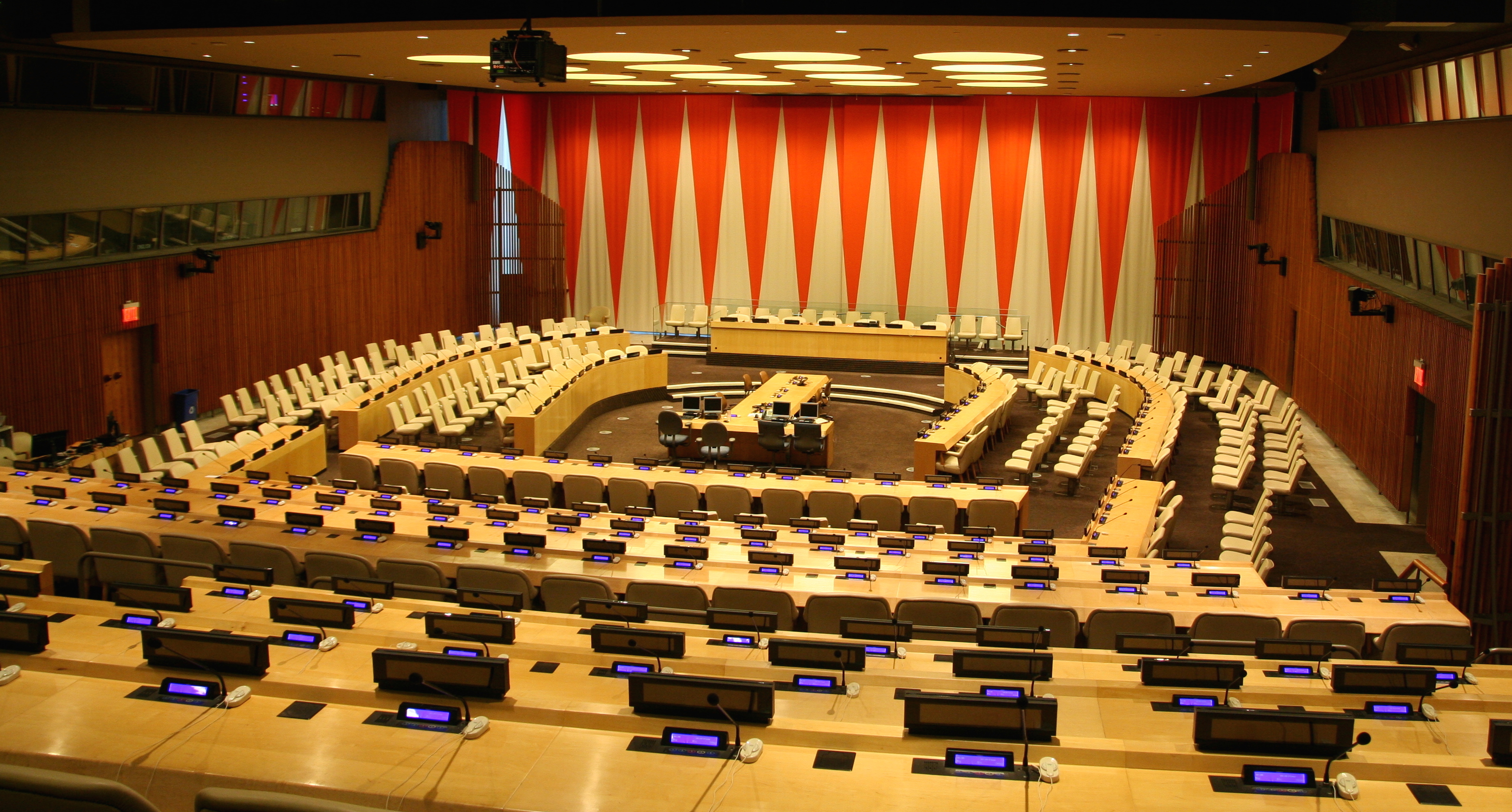
Meet ECOSOC

A few weeks ago, we introduced the United Nations General Assembly. The natural next discussion is the United Nations Economic and Social Council, better known as ECOSOC.
ECOSOC is another of the six primary organs of the United Nations. It is a dedicated venue for discussing economic and social issues. Most of this work happens through ECOSOC’s five regional commissions and an array of functional commissions. ECOSOC’s 54 members meet once per year. The annual four-week meetings alternate between the United Nations Headquarters in New York and the Palais des Nations in Geneva. There is an important reason why the body moves. One of ECOSOC’s primary responsibilities is coordinating the work of the fifteen United Nations specialized and technical agencies, many of which are headquartered in Geneva.
The specialized and technical agencies are one part of the broader United Nations system. United Nations programmes and funds are generally administered by the United Nations Secretariat. The specialized and technical agencies, by contrast, are fully independent international organizations. They have their own governing boards, their own budgets, and their own leadership. They do much of the United Nations’ on-the-ground work. These agencies include the World Health Organization (WHO), the International Monetary Fund (IMF), the World Bank, and the Universal Postal Union (UPU). We will explore the specialized and technical agencies in more depth in a future blog post.
Because they have their own governance structures, ECOSOC does not direct the day-to-day activities of the agencies. Instead, it looks at thematic issues, such as gender equality, and seeks ways that the entire United Nations system can better address the issue. ECOSOC may request or encourage the agencies to adopt a particular approach, but it ultimately relies on the agencies to take action.
ECOSOC also relies on its regional and functional commissions. The five regional commissions provide a forum to discuss economic and social integration at the regional level. They are able to tackle problems from a regional lens, such as looking at the specific urbanization challenges facing the disaster-prone Pacific Rim or biological diversity in South America. The functional commissions are able to take a broader view, examining a technical problem across the globe. The Commission of Experts on Public Administration, for instance, can examine and recommend good governance practices that are universally relevant.
ECOSOC’s role has been in flux for the better part of two decades. At the founding of the United Nations, few Member States fielded full-time representation to all of the specialized and technical agencies—and few wanted to. Today, many specialized and technical agencies have stronger governing boards, and Member States follow their activities far more closely. The agencies also coordinate on a daily and weekly basis today, often deploying new joint missions or services as a routine part of business. While there are certainly weaknesses, ECOSOC no longer needs to serve quite the same coordinating function.
The General Assembly has also become increasingly involved with the specialized and technical agencies. It is not rare today for a General Assembly resolution to encourage actions by the technical agencies. The General Assembly also works on a greater number of social and economic issues through the Second Committee, Third Committee, and a number of special meetings. The growth of strong regional organizations, like the Association of Southeast Asian Nations (ASEAN) or the European Union, has also weakened ECOSOC. Member States increasingly rely on these regional organizations to do work that might have happened in ECOSOC in decades past.
ECOSOC continues to evolve and stay relevant, however. In recent years, it has created consultative roles for major non-State actors, such as forums or consultations that include non-governmental organizations and the private sector. ECOSOC also has one great strength that has not changed: depth. The General Assembly and many other bodies are forced to cover many disparate issues. ECOSOC is able to focus and create in-depth reports and discussions. Its regional commissions often cover issues like urbanization and economic innovation at a level unmatched by other deliberative bodies.
Keep Up With The Accords
More to read
The AMUN Accords is a premier resource for fact-based Model United Nations simulations. We are always looking for new contributors. Want to write for the AMUN Accords? Check out out the submission guidelines and then get in touch!




